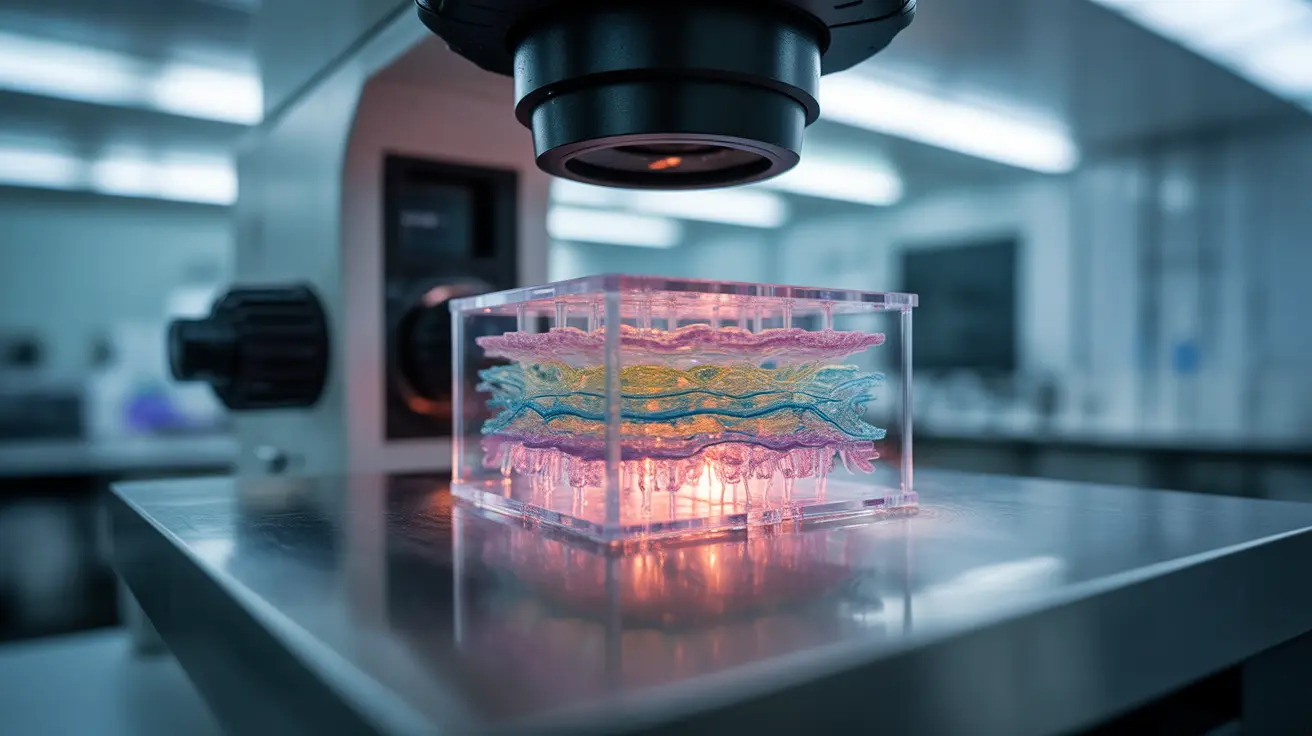Technologies avancées en tête
Innovation pilotée par l'IA dans les tests de médicaments
La poussée en faveur d'alternatives aux tests sur animaux s'accompagne d'avancées remarquables en intelligence artificielle et en modélisation computationnelle. Ces technologies offrent des alternatives prometteuses pour le criblage initial de médicaments et les tests de toxicité, réduisant potentiellement le besoin d'essais animaux aux premiers stades.
Technologie organes-sur-puce
L'une des avancées les plus prometteuses dans les méthodes de test alternatives est la technologie organes-sur-puce. Ces dispositifs sophistiqués simulent le fonctionnement d'organes humains à l'échelle microscopique, permettant aux chercheurs d'observer les réactions aux médicaments dans un environnement contrôlé qui reflète mieux la biologie humaine.
Essais cellulaires et méthodes de recherche modernes
L'intégration des essais cellulaires représente un autre progrès crucial pour réduire les tests sur animaux. Ces méthodes utilisent des cultures de cellules humaines pour évaluer les réponses aux médicaments, fournissant des informations précieuses sur les effets thérapeutiques potentiels et les risques pour la sécurité avant de passer à des phases d'essais plus complexes.
Cadre réglementaire et considérations de sécurité
FDA Modernization Act 2.0
L'initiative s'aligne sur des changements réglementaires récents, en particulier la FDA Modernization Act 2.0, qui offre une plus grande flexibilité dans les méthodes d'essai. Cette législation soutient l'adoption d'alternatives sans animaux tout en maintenant des normes de sécurité strictes pour le développement des médicaments.
Équilibrer innovation et sécurité
Si le plan MAHA promeut des méthodes de test alternatives, il reconnaît que certains tests sur animaux restent nécessaires pour une évaluation complète de la sécurité. L'approche vise à réduire plutôt qu'à éliminer les tests sur animaux, en veillant à ce que les nouveaux médicaments et traitements restent sûrs et efficaces.
Impact sur la recherche biomédicale
La transition vers des alternatives aux tests sur animaux promet d'accélérer les délais de développement des médicaments tout en améliorant potentiellement la précision de la recherche précoce. Ces méthodes avancées pourraient mieux prédire les réponses humaines aux nouveaux traitements, conduisant à des processus de développement de médicaments plus efficaces.
Questions fréquemment posées
Qu'est-ce que le plan MAHA et comment vise-t-il à réduire les tests sur animaux en recherche biomédicale ?
Le plan MAHA (Make America Healthy Again), dirigé par le secrétaire au HHS Robert F. Kennedy Jr., cherche à supprimer progressivement les tests sur animaux dans la recherche biomédicale fédérale en promouvant des alternatives avancées comme les modèles d'IA, la technologie organes-sur-puce et les essais cellulaires pour améliorer le bien-être animal et la qualité de la recherche.
Quelles technologies alternatives sont en cours de développement pour remplacer les tests sur animaux dans le développement de médicaments ?
Les alternatives clés incluent la modélisation de la toxicité pilotée par l'IA, les systèmes organes-sur-puce qui simulent les tissus humains, et les essais cellulaires utilisant des cellules humaines cultivées. Ces méthodes visent à fournir des tests plus rapides, plus humains et potentiellement plus précis que les modèles animaux.
Comment la réduction des tests sur animaux affectera-t-elle les propriétaires d'animaux de compagnie et leurs animaux ?
La réduction des tests sur animaux, notamment sur les espèces de haut niveau comme les chiens et les primates, s'aligne sur une préoccupation publique croissante pour le bien-être animal. Elle peut également accélérer le développement de médicaments, aboutissant à des traitements plus sûrs et plus efficaces qui bénéficient tant aux humains qu'aux animaux.
Conclusion
L'intégration d'alternatives aux tests sur animaux dans le plan MAHA représente une avancée significative pour moderniser la recherche biomédicale. Tout en maintenant les normes de sécurité nécessaires, cette initiative promet de faire progresser à la fois le progrès scientifique et la protection du bien-être animal. À mesure que ces technologies se développent, elles pourraient transformer notre approche du développement et des tests de médicaments dans les années à venir.






